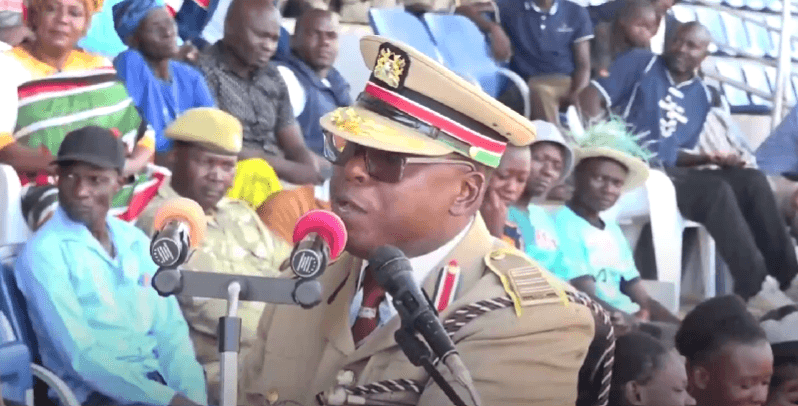With rising demand for cornea transplants in the country exceeding the 1,000 mark, hospitals in Kenya are grappling with what to make of it.
The cornea is the transparent part of the eye that covers the iris and the pupil and allows light to enter the inside.
In simple terms, the cornea is the window of the eye and focuses most of the light that enters the eye.
Common disorders like disease, infection or injuries may damage the cornea and when they happen, scars or discolouration can form.
Edward Gachagua, a cornea retrieval specialist at Lions SightFirst Eye Hospital in Nairobi, says the damage can block or distort light as it enters your eye.
“Your cornea can also become cloudy, and your vision may blur and that is when vision problems start. The only solution to this problem is the transplant of the cornea,” said Gachuagua on Tuesday.
Gachagua, in an exclusive interview, said the demand for cornea in the country is more than 1,000 annually and the only source in most eye hospitals is donations.
Currently, Gachagua said, the Hindu community is donating 99.99 per cent of the cornea received at the Lions SightFirst Eye Hospital in Nairobi.
“It is interesting to note that most of the receivers of those corneas are local Kenyans, who incidentally do not subscribe to the idea of donating cornea once they die,” said Gachagua.
He appealed to Kenyans to pledge their corneas when they are still alive so they can help the living blind people who wait for years to get them.
The cost of corneal transplant surgery is Sh200,000 in outpatient centres and Lions SightFirst Eye Hospital accepts the National Hospital Insurance Fund cards.
The hospital says patients with problems in both eyes are treated in one eye to give others a chance.
“We give prevalence to school-going children in our programs. We believe that the children in school will benefit more than the elderly people,” said another source from the hospital.
The hospital’s cornea retrieval specialist, says at Lions they have an eye bank where the cornea is processed and kept for use on-demand within two weeks of retrieval.
“We harvest the cornea from the donors, assess them by checking their cell density and do analytics on the efficacy of the tissue.
Once the cornea is harvested, a cell count is done to determine their efficacy because not all that is harvested are used for transplant because of their condition.
“To get the cornea from the donor, a kind of an agreement must be entered. We must get the consent of the donor or donor’s family after their passing, who will be made to sign a card provided by the hospital.”
The card says in part: “I desire that my eyes be donated to the Lions SightFirst Eye bank within six hours of my death. I would like to help someone see after my death.”
Lions SightFirst Eye Hospital in Nairobi is the only hospital that has an eye bank in East and Central Africa.
Corneal problems include a scratched cornea, keratoconus and corneal dystrophies, including Fuchs’ dystrophy.
The cornea plays a key role in vision. Its main job is to help your eyes focus. The cornea has a slight curvature.
As the light enters your eye, the shape of the cornea refracts (bends) it. The curve helps your eye focus on objects that are close or far away.
What treatments are available for corneal conditions?
Healthcare providers can treat most corneal conditions with prescription eye drops or oral medications (drugs you take by mouth). For keratoconus, specialized contact lenses may help.
In case the keratoconus is not advanced let's say grade 1-3, a patient can benefit from cross-linking. Through crosslinking, the cornea is prevented from worsening to a point of a cornea transplant.
Through crosslinking, the collagen fibres are strengthened, making the cornea firm and strong.
Lions sight first eye hospital can do crosslinking and it's covered by NHIF.
If you have advanced corneal disease, you may need:
- Laser treatment: A laser treatment called phototherapeutic keratectomy (PTK) can reshape the cornea.
- Corneal transplant: You may need a corneal transplant if your cornea has severe damage. You get a new cornea from a donor.
The corneal transplant was started at the Lions SightFirst Eye Hospital in 2009 when the eye bank was officially opened by the former late President Mwaki Kibaki.




![[PHOTOS] Uhuru visits Raila's grave in Bondo](/_next/image?url=https%3A%2F%2Fcdn.radioafrica.digital%2Fimage%2F2025%2F10%2F0a7bb837-9eaa-4053-be84-0ba48cc9964b.jpg&w=3840&q=100)







